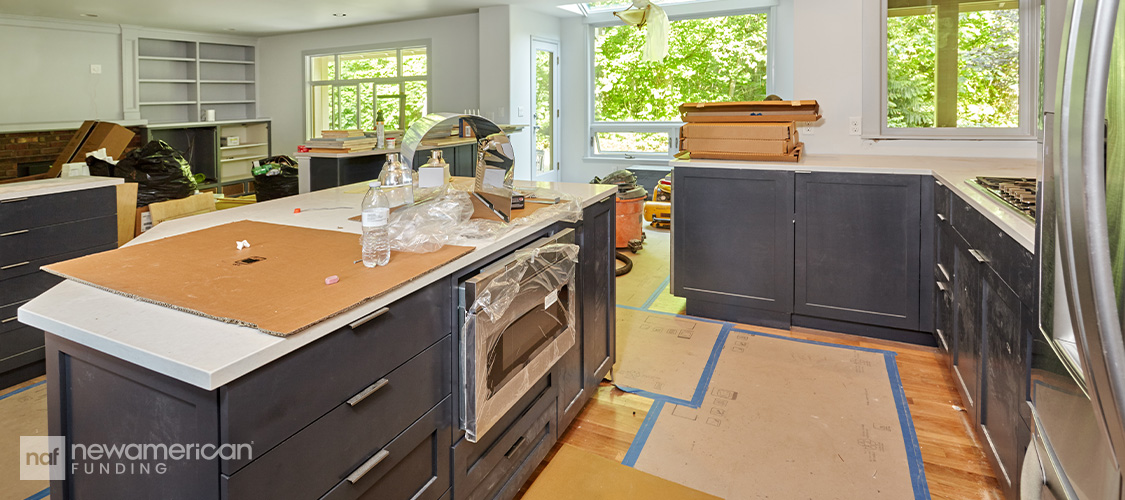Homeowners
5 Ways Homeowners Can Get Financially Fit in the New Year
December 31, 2024
It’s a new year. That means it’s time to get fit—financially fit, that is.
One of the best gifts that homeowners may be able to give themselves in 2025 is to whip their finances into shape.
Even if you break all your other resolutions (yes, it’s really hard to exist on salads and smoothies and go to the gym at the crack of dawn every day), there are some simple dollars-and-sense things you can do that are virtually painless on your budget.
“It’s always a good idea to do a financial overview using your home because typically it’s the largest asset you own,” said Amber Ernst, a sales manager at New American Funding in Bettendorf, Iowa.
“Now is a good time to review your finances and see whether you should refinance or consolidate your debt,” she said.
1. Make additional mortgage payments

If you have a mortgage, making extra payments can help you to reduce the principal and potentially save you thousands, if not tens of thousands, in the interest you pay over the life of the loan. It can also help you to shorten the duration loan.
You can pay half of your monthly mortgage payment every two weeks, which will add up to an extra monthly payment each year. You can also put bonuses, tax refunds, or extra money toward your mortgage when you can.
But, Ernst noted, if you have substantial credit card debt, a car loan or a student loan, it may be more prudent to add extra payments to them instead of your mortgage. That’s because those other forms of debt often have higher interest rates.
2. Consider a home equity loan
You may also consider consolidating your debt by tapping into your home equity. You can either do a cash-out refinance, which gives you a new loan, plus cash in your pocket to pay off bills, or take out a home equity line of credit (HELOC), which works like a credit card.
If you are at least 62 years old, you may be able to take out a reverse mortgage. These loans allow you borrow against your home. The money doesn’t need to be paid back until the homeowner moves out, sells the property, or passes away.
“You should look at all the options, do the math and do what is best for you financially,” Ernst said.
3. Do a smart remodel to increase your home value

If you’re considering remodeling to increase the value of your house, consult a real estate professional to determine which types of projects and which styles raise prices in your neighborhood.
Doing repairs yourself may sound like a good idea, but you may actually save money by hiring an architect, interior designer, and contractor. Not only can professionals help you come up with stylish solutions that look great but don’t break the bank, they also can also help source affordable finishes and furnishings.
“Be sure the changes you make will improve, not over-improve, your house,” Ernst said. “It doesn’t make sense to spend $450,000 on a house that’s only worth $350,000, unless you are going to stay a long time. Selling and moving might be a better option.”
She noted that some costly repairs, such as roofs, don’t necessarily add big returns on your investment.
“It’s not like putting new tires on a car,” she said. “They don’t increase the value of the vehicle when you sell it.”
While you’re making improvements to your home, it’s a good idea to save your receipts. When you do sell your house, you may need them to counteract capital gains taxes.
Single homeowners are eligible for a $250,000 credit. For married owners, it’s $500,000.
Here’s how it works. Let’s say you paid $500,000 for your house and sold it a decade later for $1 million. Your profit is $500,000. If you’re married, the $500,000 credit wipes out the $500,000 profit, and you are not subject to capital-gains taxes.
4. Take available tax deductions

A big perk of owning a home is that doing so can reduce your tax liability.
Homeowners can deduct state and local property taxes up to $10,000.
The interest you pay on your mortgage, up to certain limits, is another deductible expense. Mortgage points, the one-time payment you made to a lender to reduce the interest rate on your loan, are also deductible.
You must itemize your tax return to take these deductions. You may want to work with an accountant to take full advantage of all of your deductions.
5. Evaluate your home insurance
Homeowners may also want to review their homeowner’s insurance policies.
Shopping around for insurance may be able to save you money. If the goal is to decrease your monthly bills, you may want to opt to increase your deductible. That may be able to lower your payments.
Bundling your insurance may also save you money. For example, this could mean using the same insurance company for your homeowner’s and auto insurance policies.
Whichever of these strategies you decide to use, it could help you to better your bottom line.
Amber Ernst NMLS #406037






 Smart Moves Start Here.
Smart Moves Start Here.